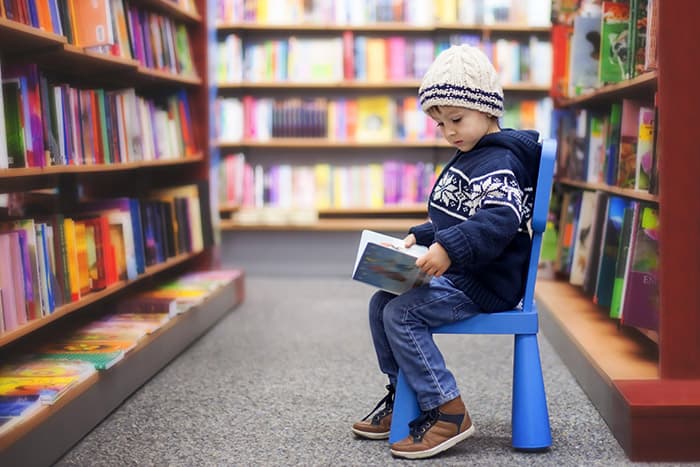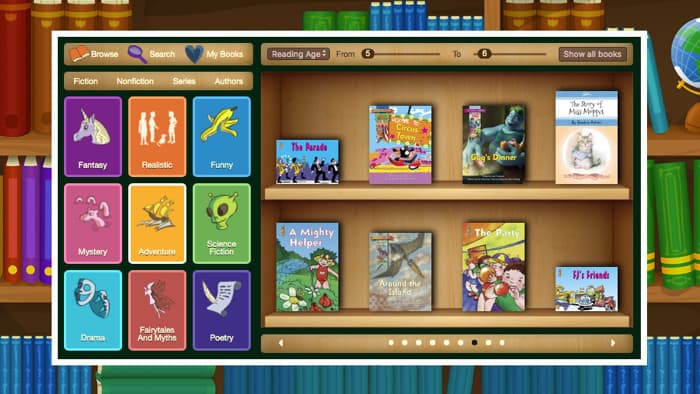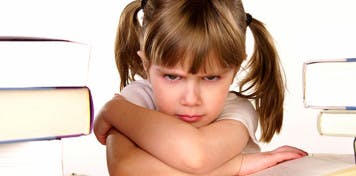


How to Make Reading Fun for Your Child: Expert Tips

Research proves that making reading fun for children increases their reading skills and overall academic achievement.
It probably comes as little surprise to parents that making reading fun for your child is one of the best ways to set them up for academic achievement.
A research report from The National Endowment for the Arts found that children and teenagers who read for pleasure on a daily or weekly basis score better on reading tests than infrequent readers.
There's no doubt that reading for pleasure works wonders for improving your child's reading skills. So it's important for parents to know how to make reading fun from an early age, especially for so-called “reluctant readers”.
Here are some expert tips on how to make reading fun for your child.
5 Ways to Make Reading Fun for Your Child
1. The clear and proven benefits of 'wide reading'
Of all the research-based strategies for making reading fun for children, 'wide reading' is perhaps the most effective and easiest to implement.
Wide reading means giving your child lots of time, opportunities, resources and encouragement to engage in the practice of daily reading. This is time spent reading books and material they choose themselves, free from academic pressure.
A number of research studies prove that wide reading improves children's comprehension, background knowledge, vocabulary, fluency and writing.
In reading for pleasure and making reading fun, there should be no log to fill in and no presentation about what they have been reading. Your child may choose to discuss their texts with peers, parents or teachers, but there should be no pressure on them to do so. It is reading purely for enjoyment.
2. Let your child choose what they want to read
Wide reading relies on the provision of a broad selection of texts. Your child should be allowed to choose their own reading material, following their interests and inclinations.
You can support your child by suggesting texts they might like based on what they have enjoyed reading in the past. This could be the next story in a series or a book by the same author. You could also look for more titles in the same genre. Be sure to offer choices though, not just one option.
Another way to make reading fun and nurture a love of books is to provide your child with a selection of texts that explore their interests. These could be nonfiction texts that will grow your child's knowledge and understanding of their current focus of curiosity, whether it's animals, oceans, motorbikes, mythical creatures, sports or dancing. You can also look for fiction stories that incorporate the topic.

Learning how to make reading fun for your child isn't hard, with research studies proving the effectiveness of 'wide reading'.
3. Creating the perfect time and place for reading
Children should be given a stress-free time slot and environment in which to read for pleasure, at their own pace, with minimal adult intervention.
There are specific programs used in schools which encourage independent reading. The idea is to have a designated time period (10-20 minutes) where everyone in the class, or the whole school, is reading for pleasure. This includes the teachers and other staff, who are modelling good reading habits.
At home, reading for pleasure can be encouraged with planned reading times as well. There is benefit in the classic 'reading in bed before lights out' routine. In a 2009 study, researchers found that just six minutes of reading reduces stress by 68%, allowing for better sleep, and it doesn't matter what is being read. The key is to make it reading for pleasure.
4. Reading over the summer
For school-aged children, the 'summer slide' is a well-documented phenomenon in which they are most vulnerable to losing knowledge and skills gained during the previous school year. This is because over the long summer holiday they are not practising the skills they have learned in school.
Here are some findings from one study:
“Our research with 116 first, second, and third graders in a school in a middle-class neighbourhood found that the decoding skills of nearly 45% of the participants and the fluency skills of 25% declined between the summer break.”
Some ways to beat the summer reading slide and making reading fun over the holidays include:
Pairing books with day trips (e.g. read books about dinosaurs before visiting a museum)
Creating a summer reading list
Encouraging your child to read to different relatives
Join a reading circle with friends or at the local library
Pack a range of books for long car trips or flights.
5. Make use of interactive e-books and read-alouds
An online library for children or device full of e-books can transform reading into a fun, interactive and highly rewarding experience, particularly if there is a read-to-me audio function for beginner readers.
Learn more about the benefits of read-aloud books.
The searchable nature of an online library can also make choosing a book easier for your child.

The Reading Eggs online library lets children aged 2–13 pick books based on reading age, genre and topic. Free trial
The online library in Reading Eggs contains over 4000 e-books, making it an excellent resource for wide reading. It provides a broad selection of fiction and nonfiction texts across a variety of topics and genres.
There are texts from early reader level to pre-teens spanning popular children's genres like fantasy, comedy, fairy tales, science fiction, poetry, earth science, history and more.
For younger children, the books from levels 0–20 have read-aloud audio that can read the text to them.
Ready to Make Reading Fun for Your Child?
Reading Eggs is the multi-award winning online reading program that makes reading fun for ages 2–13. In addition to the online library of over 4000 e-books, there are hundreds of interactive reading lessons, games and fun rewards to motivate kids to want to read. From early phonics to fluent reading, the program helps children explore the world of books, build essential skills and develop a lifelong love for reading. Try it for yourself today with a 30-day free trial.
Testimonials from other parents who have used Reading Eggs
“My son cannot get enough. Before he would never even look at a book, let alone read it! Now he pesters me to get on to Reading Eggs so he can read another book!”
– Jennifer
“Reading Eggs has helped my daughter tremendously! I knew she had the capability to read, even at a young age, but she had no motivation to actually want to learn how. I hired a private tutor to help her, but even after a semester of reception, hardly any progress. Someone suggested Reading Eggs to me and to my surprise, within two weeks of using, she had doubled her sight word list and now loves reading everything (she's in 1st grade now). I completely recommend you try it for your child. It's fun, very interactive, and as a parent you can track their progress and print supplemental worksheets for the lessons. They are in a very complete reading system you'll love!”
– Sarah
“We have had wonderful experiences using Reading Eggs. Our 6-year-old didn't really care to do any reading, but the ways in which things were taught turned things on for her. [I] can't wait to continue. We use it in our curriculum each day and it has become an important part of our program.”
– Sharon, Homeschooler
“I just wanted to say a big thank you. My son has been struggling with his reading. He is in Year 1 and nothing seems to hold his interest. By chance we came across your website last night and he couldn't have been more engrossed, [I] had trouble getting him away from the computer. First thing this morning he was ready to go back on the program again. Thank you, thank you, thank you.”
– Emily
“Thank you to Reading Eggs – I had a 6-year-old boy who really battled with reading, and even opening a book was a challenge. Now both my 6-year-old and almost 4-year-old fight over who gets to do Reading Eggs each afternoon. They love it. All of it. It is a well thought out, interactive, fast-paced program which my kids love. Thank you!!”
– Racheal
“The e-library is such a fantastic feature — the selection of books, the quizzes and rewards — JUST FABULOUS!”
– Kim
References
National Endowment for the Arts (2007) To Read or Not To Read: A Question of National Consequence (research Report #47) retrieved from https://www.arts.gov/sites/default/files/ToRead.pdf
Krashen, S. D. (2004). The power of reading: Insights from the research. Westport, Conn: Libraries Unlimited.
Evans, M.D.R., Kelley, J., Sikora, J., Treiman, D.J., (2010) Family scholarly culture and educational success: Books and schooling in 27 nations. Research in Social Stratification and Mobility, 28(2), 171-197, https://doi.org/10.1016/j.rssm.2010.01.002
Mraz, M., Rasinski, T.V. (2007) Summer reading loss. The Reading Teacher, 60(8), 784-789, DOI: 10.1598/RT.60.8.9
National Reading Panel (U.S.), & National Institute of Child Health and Human Development (U.S.). (2000). Report of the National Reading Panel: Teaching children to read: reports of the subgroups. Washington, D.C.: National Institute of Child Health and Human Development, National Institutes of Health.






